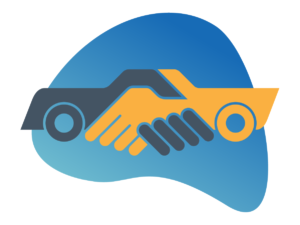Three Ways To End Your Car Lease Early
At the time, leasing a car sounded like a great deal: You got to drive home in a brand-new car for far less than you would have paid if you bought it outright. And in two or three years, you get to return it the dealership, buy it, lease a newer model, or just walk away. Great!
Fast-forward a year or so, and your situation has changed. The same, shiny new vehicle you loved at lease signing might not be the right fit anymore. Maybe the small car you leased can’t accommodate your growing family. Maybe your financial situation has changed, and you can no longer afford the monthly payment. Or maybe you have changed jobs, and your new commute threatens to blow your yearly mileage limit.
Whatever the reason, you need to learn how to get out of a car lease early—and fortunately, you have a few options. Unfortunately, none of them are going to let you walk away without penalty.
Dealerships and banks make money from leases by predicting what your car will be worth when you turn it in and charging you the difference. Essentially, you are paying for the vehicle’s depreciation in value plus a little extra for as long as you drive it.
If you decide to terminate your lease before the end of the agreed-upon term, your titleholder stands to lose money. They are likely to make an early exit difficult and expensive to discourage lessees from trying to do exactly what you want: get out of the lease early.
That being said, people learn how to get out of a car lease early all the time. Here are the steps:
1. Trade it In
This is both the simplest and quite likely the most expensive of your options. Many dealers will allow you to get out of your lease early if you are looking to get into one of their newer or pricier models. But you are likely going to have to pony up all the fees and penalties that were spelled out in your lease contract. According to DMV.org, those penalties can include:
- Remaining payments on your lease
- An early termination fee
- Costs related to preparing the vehicle for sale
- Storage and/or transportation of the vehicle
- Taxes associated with leasing, if any
- Negative equity between your lease amount and the current value of your car
You may be able to roll penalties into your new monthly lease payment. If not, it’s a hefty premium to pay to switch vehicles.
2. Swap Your Lease
Lease-swapping involves finding someone else to take possession of your leased vehicle and fulfill the remaining terms of the contract, including monthly payments and any penalties or fees assessed at turn-in. You can find a new lessee on your own or use a lease-swapping website, which may charge you a fee in the $250 to $500 range if you are successful. If you are desperate to get out of your lease, swapping it could cost you a good deal less than termination.
Here’s the catch: Some lessors simply don’t allow it. You will have to take a close look at your original contract to see if it is even an option.
Many lease companies require the original leaseholder to remain on the paperwork in the event of a swap. If that is the case, you essentially become a cosigner for the new lessee. If they default or incur penalties they can’t or won’t pay, the titleholder can still come after you for the funds.
3. Buy It Outright
Every lease agreement includes a clause that allows you to purchase the vehicle outright at any point during the term. Look for the “buyout amount” listed on your most recent statement. It’s a close approximation of the total of your remaining payments plus the predetermined residual value of the vehicle.
To decide whether this strategy might work for you, the first thing you will want to do is determine how much your vehicle is actually worth and compare it to the buyout amount. You may be able to resell it and recoup or even exceed the purchase price.
Even if there is a small difference, a buyout may still be worth it — at least you will avoid all those penalties. But if the buyout amount is substantially higher than current market value, then this path will likely cost too much.







